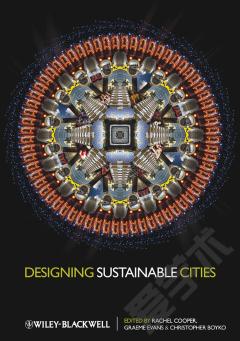Designing Sustainable Cities
This book offers practical solutions to achieving sustainable urban design and development, and helps designers communicate these solutions effectively to planners, developers and policy makers. Addressing sustainability issues in relation to the design and planning of the urban environment is a complex, multi-disciplinary issue and solutions never arrive from a single perspective. The authors use design as a facilitating factor to consider when and by whom decisions that contribute to sustainability are made, and through three major city-centre case studies - London, Manchester and Sheffield â they consider social, environmental and economic factors and examine their relationship to the decision-making process. Designing Sustainable Cities begins by identifying the key processes and lead decision-makers. The following chapters develop an understanding of the dimensions of sustainability, presenting the tools by which the dimensions can be analysed. Later chapters illustrate the trade-offs and the relationships between the dimensions of sustainability - with case study examples - as well as the use of IT in making design decisions. Finally, the book makes recommendations for future approaches to the design, development and on-going management of urban environments. Designing Sustainable Cities covers: * latest research data on the urban environment and the interaction between social, economic and environmental issues * methods of understanding the context in which urban design takes place * guidance on the codes of practice * process maps to help understand the context, make trade-offs and develop design solutions that allow for change * methods for testing the consequences of design proposals and monitoring outcomes.
{{comment.content}}








 京公网安备 11010802027623号
京公网安备 11010802027623号